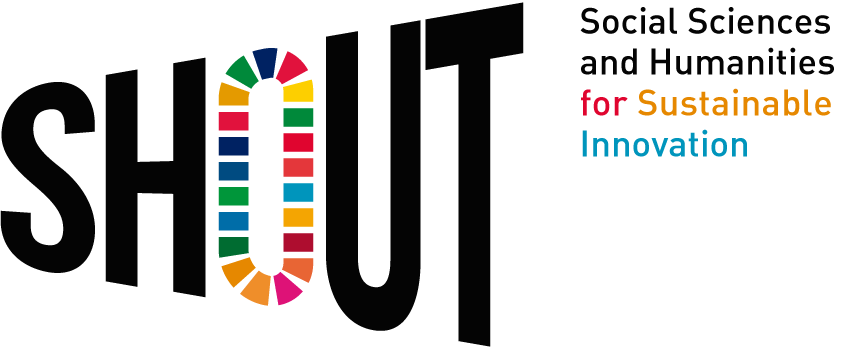Relationship of SSH and SDGs 2030
What are Sustainable Development Goals (SDGs) 2030?
- The 2030 Agenda for Sustainable Development – adopted by all United Nations Member States in 2015.
- It consists of 17 SDGs.
- It provides a shared blueprint for peace and prosperity for people and the planet, now and into the future.
- The 2030 Agenda advocates: global partnership; and „ending poverty and other deprivations must go hand-in-hand with strategies that improve health and education, reduce inequality, and spur economic growth – all while tackling climate change and working to preserve our oceans and forests.”
Visit this site:
The Sustainable Development Goals – Action Towards 2030 | CAFOD and SDGs
„The universal, transformational and inclusive SDGs describe major development challenges for humanity. The aim of the 17 SDGs is to secure a sustainable, peaceful, prosperous and equitable life on earth for everyone now and in the future. The goals cover global challenges that are crucial for the survival of humanity. They set environmental limits and set critical thresholds for the use of natural resources.
The goals recognize that ending poverty must go hand-in-hand with strategies that build economic development. They address a range of social needs including education, health, social protection and job opportunities while tackling climate change and environmental protection. The SDGs address key systemic barriers to sustainable development such as inequality, unsustainable consumption patterns, weak institutional capacity and environmental degradation.”
Read this:
https://unesdoc.unesco.org/ark:/48223/pf0000247444
A Novel ICT Framework for Sustainable Development Goals
https://www.mdpi.com/2071-1050/11/7/1961/htm
What is sustainable development?
„Sustainable development is the idea that human societies must live and meet their needs without compromising the ability of future generations to meet their own needs.” (http://www.un-documents.net/our-common-future.pdf)„In essence, sustainable development is a process of change in which the exploitation of resources, the direction of investments, the orientation of technological development; and institutional change are all in harmony and enhance both current and future potential to meet human needs and aspirations.”
A sustainable development agenda (Davoudi, 2000)
- Strategic thinking
- Holistic approach
- Expert and non-expert knowledge
- Political commitment
- Social responsiveness
- Ethical guidelines
- Participative processes
- Reflexive institutions
“By 2030, ensure that all learners acquire the knowledge and skills needed to promote sustainable development, including, among others, through education for sustainable development and sustainable lifestyles, human rights, gender equality, promotion of a culture of peace and non-violence, global citizenship and appreciation of cultural diversity and culture’s contribution to sustainable development” (Sonetti, B.; Barioglio, C; Campobenedetto, D. , 2020).
„A fundamental change is needed in the way we think about education’s role in global development, because it has a catalytic impact on the well-being of individuals and the future of our planet. … Now, more than ever, education has a responsibility to be in gear with 21st century challenges and aspirations, and foster the right types of values and skills that will lead to sustainable and inclusive growth, and peaceful living together. “Irina Bokova, Director-General of UNESCO
„To create a more sustainable world and to engage with sustainability-related issues as described in the SDGs, individuals must become sustainability change-makers. They require the knowledge, skills, values and attitudes that empower them to contribute to sustainable development. Education, therefore, is crucial for the achievement of sustainable development. However, not all kinds of education support sustainable development. Education that promotes economic growth alone may well also lead to an increase in unsustainable consumption patterns. The now well-established approach of Education for Sustainable Development (ESD) empowers learners to take informed decisions and responsible actions for environmental integrity, economic viability and a just society for present and future generations.
What is Education for Sustainable Development (ESD)?
(https://en.unesco.org/themes/education-sustainable-development/what-is-esd)
- empowers learners with knowledge, skills, values and attitudes to take informed decisions and make responsible actions for environmental integrity, economic viability and a just society.
- is a lifelong learning process and an integral part of quality education.
- it enhances the cognitive, social and emotional and behavioral dimensions of learning.
- it is holistic and transformational, and encompasses learning content and outcomes, pedagogy and the learning environment itself.
https://en.unesco.org/themes/education-sustainable-development/what-is-esd
Key competences for sustainability
Systems thinking competency: the abilities to recognize and understand relationships; to analyse complex systems; to think of how systems are embedded within different domains and different scales; and to deal with uncertainty.
Collaboration competency: the abilities to learn from others; to understand and respect the needs, perspectives and actions of others (empathy); to understand, relate to and be sensitive to others (empathic leadership); to deal with conflicts in a group; and to facilitate collaborative and participatory problem solving.
Anticipatory competency: the abilities to understand and evaluate multiple futures – possible, probable and desirable; to create one’s own visions for the future; to apply the precautionary principle; to assess the consequences of actions; and to deal with risks and changes
Critical thinking competency: the ability to question norms, practices and opinions; to reflect on own one’s values, perceptions and actions; and to take a position in the sustainability discourse.
Normative competency: the abilities to understand and reflect on the norms and values that underlie one’s actions; and to negotiate sustainability values, principles, goals, and targets, in a context of conflicts of interests and trade-offs, uncertain knowledge and contradictions.
Self-awareness competency: the ability to reflect on one’s own role in the local community and (global) society; to continually evaluate and further motivate one’s actions; and to deal with one’s feelings and desires
Integrated problem-solving competency: the overarching ability to apply different problem-solving frameworks to complex sustainability problems and develop viable, inclusive and equitable solution options that promote sustainable development, integrating the above-mentioned competences.
Strategic competency: the abilities to collectively develop and implement innovative actions that further sustainability at the local level and further afield.
The social sciences and humanities with its concepts and methods contribute to the development of knowledge, competencies and skills needed to articulate, promote, advocate, but also find appropriate solutions needed to achieve the goals of sustainable development presented in the Agenda 2030.
